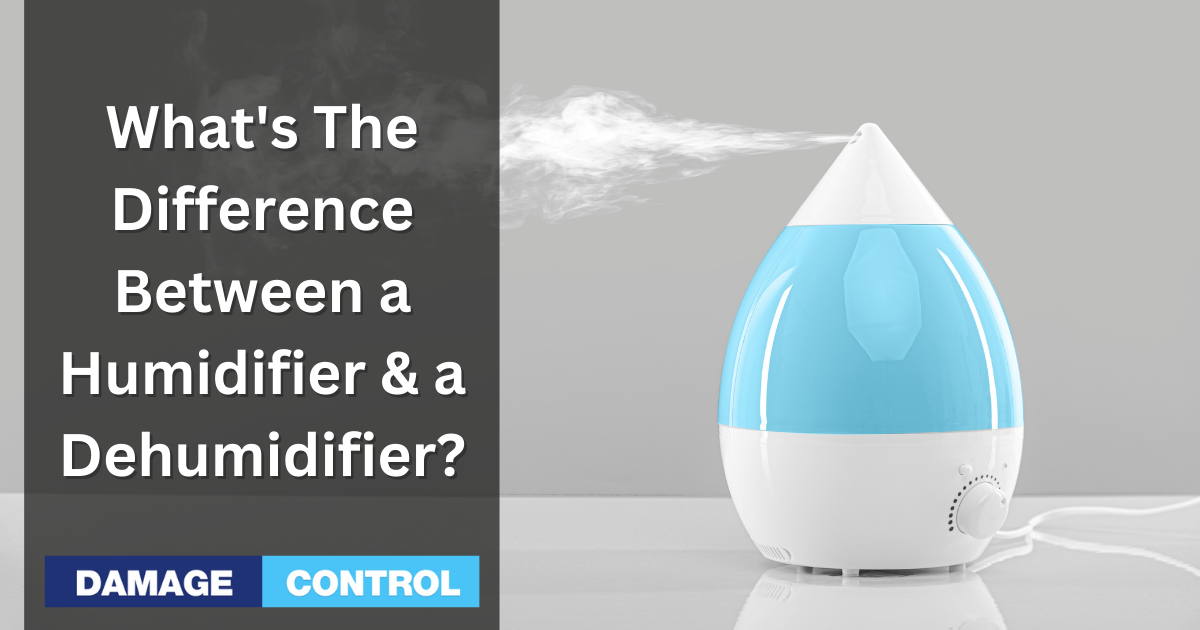Humidity levels can greatly impact our comfort and health, making maintaining optimal levels in our homes important. However, with so many different types of indoor air quality appliances on the market, it can be confusing to determine which one you need.
This article will explore the differences between a humidifier and a dehumidifier, two appliances that can help regulate indoor humidity levels. We'll also discuss why choosing the right one for your needs is important. By the end of this article, you'll better understand these two devices and be able to make an informed decision on which one is right for you.
What's The Difference?
The difference is that humidifiers add moisture to the air, while dehumidifiers remove it. Humidifiers are often used to add moisture to the indoor air during the wintertime. Dehumidifiers are often used in damp areas of a home, such as a basement, and in the spring and summer to remove excess humidity.
Which One Do I Need To Buy?
The first thing you need to determine is how humid the air in your home is with a hygrometer. Ideally, the humidity indoors should be between 30 and 50%. If your home's humidity is above 50%, you should get a dehumidifier to help prevent mold. If the humidity is below 20%, a humidifier would be what you need.
Benefits of using a dehumidifier
Improving indoor air quality
Dehumidifiers can help improve indoor air quality by removing excess moisture from the air, and reducing mold and bacteria growth. This can lead to a cleaner, fresher, and healthier environment.
Preventing mold and mildew growth
Excess moisture in the air can lead to the growth of mold and mildew, which can cause damage to your home and pose health risks. Dehumidifiers can help prevent mold and mildew growth by reducing the moisture levels in the air.
Preventing damage to furniture and other objects
High humidity levels can cause damage to furniture and other objects in your home. By reducing humidity levels, dehumidifiers can help prevent this type of damage.
Using a dehumidifier in different seasons and climates
Dehumidifiers are useful in summer and winter. In the summer, they can help reduce excess moisture levels and alleviate the effects of humidity. In the winter, they can help prevent condensation and reduce the risk of mold growth.
Tips for selecting the right type of dehumidifier for different spaces
When choosing a dehumidifier, it's important to consider the size of the space and the type of dehumidifier that will be most effective. A compact dehumidifier may be sufficient for smaller spaces like bathrooms and closets. For larger spaces, a whole-house dehumidifier may be necessary.
Factors to consider when choosing a dehumidifier
When choosing a dehumidifier, it's important to consider factors such as noise level, energy efficiency, and ease of maintenance. Some dehumidifiers may require more care than others, and some may consume more energy than others. Additionally, some dehumidifiers may be louder than others, which may be considered for use in a bedroom or quiet space.
Conclusion
In summary, humid and dehumidifiers are essential for maintaining optimal indoor air quality and comfort. Humidifiers are instrumental in adding moisture to dry air, while dehumidifiers effectively remove excess moisture, thus preventing moisture-related discoloration and mold growth. The choice between the two largely depends on your unique needs and the specific environment of your home.
When selecting the right model, factors such as size, features, energy efficiency, noise level, and maintenance requirements should be carefully considered. Regular cleaning and maintenance of your unit are crucial to thwart the growth of bacteria and mold, ensuring a healthier living space.
Investing in a humidifier or dehumidifier can be highly beneficial if you aim to enhance air quality, alleviate dry skin symptoms, or protect your home from moisture damage.

